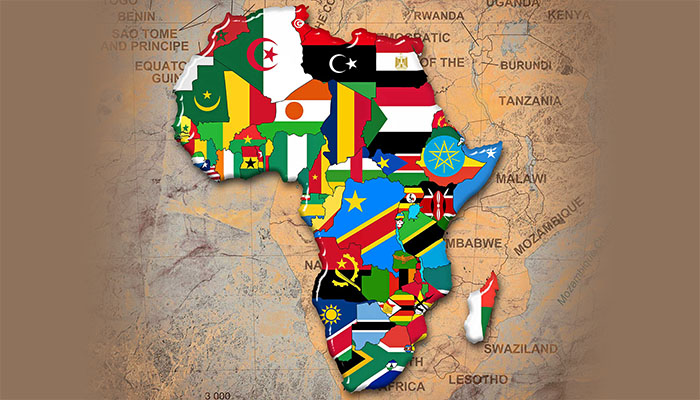Spotlight on Africa’s Oil and Gas: Growth, Challenges, Development Strategies
By Ndubuisi Micheal Obineme
Africa is a blessed continent of 55 countries with abundant energy resources, and the continent has been producing oil for over 70 years. Africa accounts for around 9% of the global oil production, and this production is coming from 20 African countries across all five regions. However, the production output is concentrated in five countries namely, Nigeria, Algeria, Angola, Egypt, and Libya, who between them account for over 80% of Africa’s oil production.
In this article, Oil and Gas Republic analyses some of the growth opportunities, challenges in the Sub-Saharan Africa oil and gas industry, featuring insights from industry experts which will serve as development strategies to harness the region’s oil and gas resources for economic prosperity and well-being of the people.
As of 17th June 2021, there were 178.2 million confirmed cases of coronavirus, causing nearly 3.86 million deaths, while approximately 162.7 million people recovered from the disease. The number of confirmed COVID-19 cases in Africa amounted to 5,179,687 which represented around 2.9 percent of the infections around the world. South Africa is the most drastically affected country, with more than 1.78 million infections.
In the pre-COVID-19 era, in 2019, the African oil and gas industry was heading towards positive gains for the first time in several years. But due to the Coronavirus, it has however reversed most of these gains as we experienced the biggest global oil demand slump in history in the year 2020, as well as an acceleration of the global energy transition. Experts have also said that Africa can benefit from early adoption of the energy transition, using oil and gas revenues to accelerate and move into clean energy.
According to a report, Africa’s economy shrank by 2.1% in 2020 and is expected to grow by 3.4% in 2021 as the global economy recovers from the impact of the COVID-19 pandemic. Over 1.2 million vaccines have been deployed which means that around 16% of the world population has been vaccinated.
Africa is gradually becoming a continent of influence. This time, not by its economy or energy potentials but by its population. Experts have said that Africa’s population can help the continent to harness its hydrocarbon resources for economic growth and development through regional integration. The report has shown that between now and 2050, more than half of global population growth is expected to occur in Africa. The continent has the highest rate of population growth among developed countries. According to the United Nations, the population of sub-Saharan Africa is projected to double by 2050.
“A rapid population increase in Africa is anticipated even if there is a substantial reduction of fertility levels soon. Regardless of the uncertainty surrounding future trends of infertility in Africa, the large number of young people currently on the continent, who will reach adulthood in the coming years and have children of their own, ensures that the region will play a central role in shaping the size and distribution of the world’s population over the coming decades,” the UN said.
Africa is the world’s youngest continent with almost 60 percent of its population as of 2019 under the age of 25. The UN’s demographic projections predicted the median age in the continent to be 19.8 in 2020. On the continent, Mauritius was expected to have the highest median age, 37.4, and Niger was expected to have the lowest, 15.1. In 2019, more than 1/3 of the population was aged between 15-34. The UN also projected that by 2100, Africa’s youth population could be equivalent to twice Europe’s entire population.
Africa will lead the way in population growth, accounting for half of the total increase in 2050, with Asia following in second place. India will become the world’s most populous country by 2030.
Several reports confirm that the future looks bright for the African energy industry and the continent is still largely under-explored. The significant energy resources found across the continent have made it a prime region for investment for both local and international investors.
The Spanish government is focusing on Africa to boost its diplomatic and business ties, marking out the continent as its ambitious plan to build closer economic and institutional ties.
Prime Minister Pedro Sánchez has said he wanted to “turn this decade … into the decade of Spain in Africa.”
Sánchez unveiled his “Africa Focus 2023” plan at an event in Madrid attended by Ghana’s president, Nana Akufo-Addo, the foreign ministers of Ghana, and Senegal, Kenya’s head of trade, and the president of the African Development Bank, Akinwumi Adesina.
Spain had few colonial possessions in Africa compared with some other European countries, but Sánchez noted that the African continent lies just a couple of dozen kilometers away from the southern Spanish coast. He described Spain as “Europe’s southern gateway” for Africa.
FocusAfrica2023 will also address Spain’s strategic action for and with Africa, in response to the impact of COVID19 on the continent and in support of the launch of the African Continental Free Trade Area (AfCFTA).

Boris Johnson, British Prime Minister
British Prime Minister, Boris Johnson, has said that ‘Africa is the future and the UK has a huge role to play in realizing long-term prosperity for all African nations.
In his welcome speech at this year’s UK-Africa Investment Virtual Summit, he told delegates that his ambition for the UK to become Africa’s investment partner of choice.
In his words, “In the last 12 months, the online deal room platform launched at last year’s summit has attracted over 600 million new deals, while the newly established Africa Investors Group grows from strength-to-strength.
“We in Britain have much to learn from the energy and ambition of African entrepreneurship and wealth creation. This new partnership between our nations that we embarked on last year. I hope we can seize more of the opportunities before us to drive growth, create jobs and build a better future for all our people.

Akinwumi Adesina, President of African Development Bank (AFDB)
AfDB’s President Akinwumi Adesina affirmed that Africa is a fertile ground for investment and the world’s next business frontier. Adesina told UK investors at the DIT Africa Investment Conference 2021.
He said, “Africa still possessed the same fundamentals that had driven the continent’s phenomenal growth over the past decade. These potentials are presented by the newly launched African Continental Free Trade Area (AFCFTA).
“The fundamentals in those phenomenal growth rates in Africa are still there. Africa still leads in terms of ease of doing business. It’s very exciting, the digital explosion that you see in Africa today,” Adesina said, listing among others the tide of mergers and acquisitions among African firms.
“British investors were urged to pay attention to Africa. “That’s where the next frontier is,” Adesina said.
Based on our findings, the African continent possesses 7.5 percent and 7.1 percent of global oil and gas reserves, respectively, according to Deloitte in 2019. The continent accounted for more than 7.9 million barrels per day in 2019, which is about 9.6 percent of world output. This level of production is down somewhat from the heights of 2005 to 2010 when African production was nearly 10 million barrels per day. The major production declines between 2010 and 2015 were mostly due to lower global oil prices. Output stabilized between 2015 and 2019.
However, the outbreak of the Covid-19 pandemic and a production dispute between Saudi Arabia and Russia in Q1, 2020, dramatically led to a dip in oil prices. As a result, future levels of oil production in Africa and around the world were highly uncertain as of June 2020. Prices have, however, recovered following a supply cut agreement reached by the Organization of Petroleum Exporting Countries (OPEC) and its allies in April 2020.
In another development, the African Coalition for Trade & Investment in Natural Gas (ACTING) recently published its inaugural “State of Play: African Gas” report, providing the most comprehensive resource on Sub-Saharan Africa’s natural gas markets.
The ACTING report highlights that the continent remains one of the lowest consumers of gas globally. Low gas penetration rates in sub-Saharan Africa contrast with the vast amount of natural gas reserves found onshore and offshore from Senegal to Mozambique and whose development could lift millions out of poverty and provide the resource the continent needs to industrialize.
It notably reveals that the growth of Africa’s natural gas consumption and production is set to be one of the world’s fastest until 2040 on the back of new LNG projects and strong policy support for natural gas consumption across industries, transport, and power. It showcases true success stories in domestic gas monetization in Côte d’Ivoire, Cameroon, and Tanzania, and reveals the true diversity of African gas experiences with associated and non-associated gas, LNG, LPG, methane, coal-bed methane, helium, and hydrogen.
ACTING forecasted a 55% growth in grid-connected gas-to-power generation by 2025 on the back of greenfield and brownfield projects and the conversation of coal and diesel power plants to gas in Senegal and South Africa. West Africa is the region expected to see the biggest gas-to-power capacity addition by 2025, with at least 750 MW in Senegal, 643 MW in Côte d’Ivoire, 450 MW in Nigeria, 200 MW in Ghana, 150 MW in Benin, and 65 MW in Togo.

Mohammad Barkindo, The Secretary-General of the Organisation of Petroleum Exporting Countries (OPEC)
The Secretary-General of the Organisation of Petroleum Exporting Countries (OPEC), Mohammad Barkindo has said that Africa will continue to be an integral and important player in the oil and gas industry’s efforts to meet the global rising energy needs.
He said: “Africa will continue to be an integral and essential player in the oil and gas industry’s long-term efforts to meet the rising energy needs of the world’s rapidly growing population.
“As energy stakeholders,” he said, “We must continue to dialogue and collaborate at all levels to achieve our common goals. In this regard, I invite all of our fellow African energy producers to join with us as we will only get stronger with the enhanced support and cooperation of our continental partners.”
According to Barkindo, OPEC has a long history of prioritizing cooperation through dialogues with several oil-producing and consuming countries, as well as with international organizations and global corporations.
Challenges
Despite positive developments in Africa’s oil & gas industry, especially in discoveries, the industry still faces numerous and persistent challenges around talent shortages on local content development, regulatory uncertainty, political instability, corruption and fraud, and a lack of infrastructure.
According to the report, intra-African trade stands at 15 per cent, which is meagre when compared to Asia’s 58 per cent and Europe’s 67 per cent. High tariffs and colonial-era infrastructure make it easier for African countries to export to Europe or the United States than to one another. Also, the overlapping membership in Africa’s eight Regional Economic Communities (RECs) hampers trade standardization and enforcement.
Notwithstanding the challenges, Africa does offer plenty of opportunities in the form of unexplored hydrocarbon demand fueled by population growth, urbanization, and the emergence of a growing middle class.
On this note, experts have raised critical issues, calling on government, stakeholders, and players to come together to develop a roadmap for regional integration and insulate the continent from the current market situation and harness its energy resources beyond oil.
However, experts have suggested the development of a regional master plan that will serve as a template for government and industry players to advance the regional integration for the African continent.
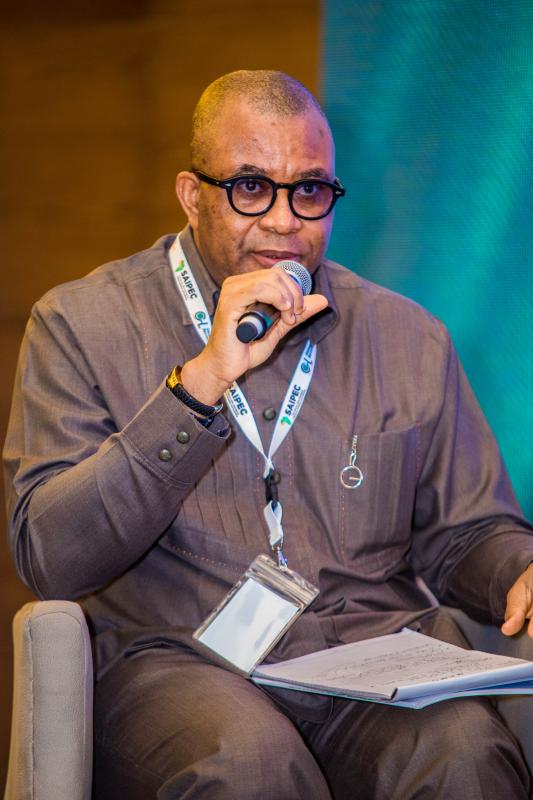
Mr. Tunde Adelana, Director of Monitoring and Evaluation, Nigerian Content Development and Monitoring Board (NCDMB)
The Director of Monitoring and Evaluation, Nigerian Content Development and Monitoring Board (NCDMB), Mr. Tunde Adelana said that regional integration should be embraced as a survival strategy for Africa post-COVID-19.
Adelana stated this during a Webinar hosted by Majorwaves Energy Report, with the theme; “Optimising Local Content through Regional Integration in a post-COVID-19 Africa” in June 2020. He noted that Africa is a very rich continent and has a lot of mineral resources in every nook and cranny, adding that research should be encouraged in the continent to develop these local resources.
He further explained that Africa’s oil-producing countries can develop their technological capacities and capabilities by learning from Nigeria through collaboration.
He said, “Africa is a very rich continent and we have a lot of mineral resources everywhere. We need to look back and do some more research into our local resources, to see how they can be utilized to support, not just the oil and gas sector, but the entire economy at large. “Nigeria has abundant skills. We have abundant capabilities and competencies, given the length of time, we have been in this industry (60 years). Our achievements speak for themselves. And for the rest of Africa, there is a lot you can learn from Nigerians.”
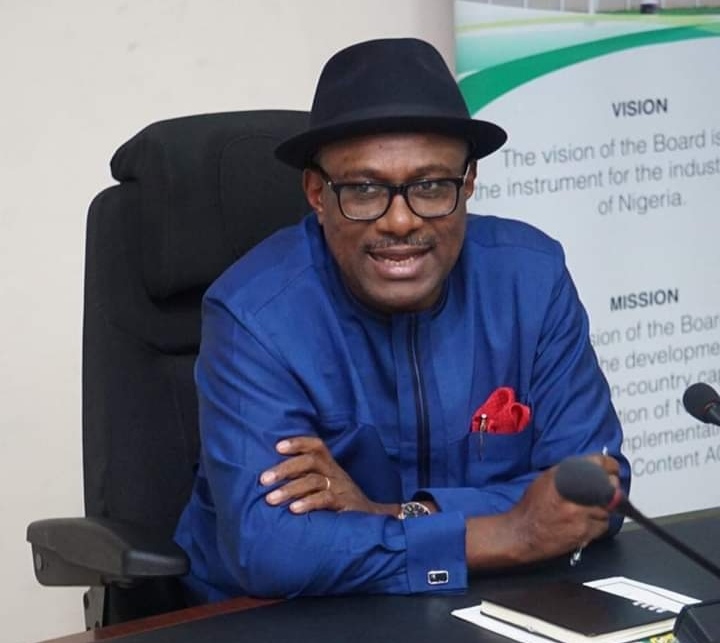
Engr. Simbi Wabote, Executive Secretary of Nigerian Content Development & Monitoring Board (NCDMB)
At the 2021 SAIPEC African Content Series, Engr. Simbi Wabote, Executive Secretary of Nigerian Content Development & Monitoring Board (NCDMB), said African countries should collaborate and share best practices on local content implementation and capacity building.
“In all my years of practicing local content, African countries do not know what they have in their country. They always look outside the fence. But, I have seen that the capacity in-country is unbelievable.
“Africa is a great continent with enormous potentials and is currently going through a transformation process in many areas. The challenge is that people don’t trust their transformation going on in Africa but they always look outside the fence.
“The discovery of hydrocarbon in many African countries has increased the penetration of telecommunication, technology, population growth, and creating awareness on homegrown solutions,” Wabote said.
As part of its commitment to deepening local content practice in Africa, the Nigerian Content Development and Monitoring Board (NCDMB) in partnership with the African Petroleum Producers Organization APPO, recently hosted the maiden edition of the African Local Content Roundtable, a Pan-African engagement of critical stakeholders in the African oil and gas industry to institutionalize a peer review mechanism on local content as a key development imperative for the domestication and sustainable growth of Africa’s hydrocarbon resources in Yeneagoa, Bayelsa State.
The roundtable, focused on the evaluation of regulatory models for the governance, funding, and monitoring of Local Content implementation in frontline economies, laying a solid foundation for the design of an African Local Content program to maximize economic benefits from the implementation of the African Continental Free Trade Agreement (AfCFTA) in the hydrocarbon value chain and data sharing on capacities that exist around skills, infrastructure, facilities, assets and funding for exploration, field development and production activities in Africa.
In his words, NCDMB’s Executive Secretary outlined five key parameters needed for sustainable local content practice in Africa’s oil and gas industry. The key parameters include Regulatory Framework; Gap Analysis, Capacity Building, Funding & Incentives, Research & Development.
“For any successful local content practice, an enabling regulatory framework backed by proper legislation is very fundamental in local content practice.
“In Nigeria, we have the NOGICD Act 2010. It is no longer optional to comply with local content requirements. The NOGICD Act of 2010 establishes NCDMB as the sole agency of the Federal Government that is responsible for driving Nigerian Content in the oil and gas industry.
One of the provisions on the NOGICD Act, according to him, is that first considerations will be given to Nigerian companies in the award of blocks & licenses, Nigerian goods, and services, employment & training of Nigerians.
He described how Nigeria has deployed these parameters in the oil and gas sector which had led to several achievements in the country’s oil and gas industry.
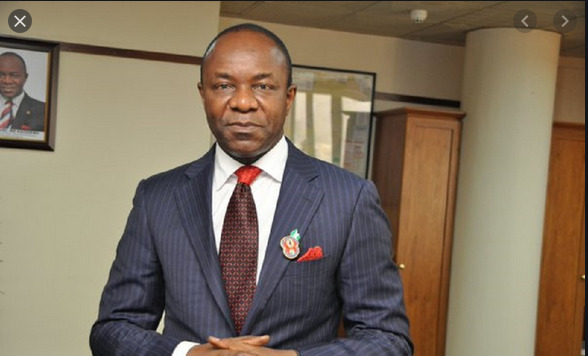
Dr. Emmanuel Ibe Kachikwu, Nigeria’s former Minister of State for Petroleum Resources
Addressing energy infrastructure deficiency in Africa, Nigeria’s former Minister of State for Petroleum Resources, Dr. Emmanuel Ibe Kachikwu, led the discussion on the issues at the Angola Oil & Gas Technology Virtual Conference 2020, noting that there is a depth of infrastructural challenges in Africa’s energy industry.
Kachikwu advocates for the establishment of a Pan – African Infrastructure Scheme across the continent, which will serve as a mechanism of securing investment within the African market.
According to a report, Africa requires up to $10 to $15 billion investment to develop its infrastructure in the energy sector.
Kachikwu explained, “Every country doesn’t need to have a refinery but if we have a couple of big ones around, then, we can take over the downstream sector. The importation from western countries will end. The biggest producers in Africa are Nigeria, Angola, Egypt, among others. They need to come together to see what they can do for the African continent.
“There is also a need for more private sector collaboration. A lot of efforts are still led by the government which is good and understandable due to the share size of the government. But the private sector is key. They need to collaborate and take major investment decisions.
“I would urge that as we begin to look at new mineral licenses and bid rounds, we also need to zero-in our African businesses including the government to externalize the investment. African government must put as much importance on current resource development to plan for the future.
“For example, I would like to see Nigeria just signed an agreement with Niger over the refinery. Dangote refinery is making headway in Nigeria. But we would like to see a couple of other ones within the African continent so that we can take over the downstream sector.
“I am very impressed to see that APPO is working with Afreximbank to raise billion dollars of investment for the oil sector. But we need a whole lot of that.”
Speaking further, Kachikwu also advocated for new fiscal policies to harmonize the investment climate in Africa’s upstream sector.
He stressed that the COVID-19 has taught the industry a lesson in such a way that the fiscal that is taken for granted in the oil sector has deep. And most oil-producing countries are beginning to reduce production to stabilize the market and this is good for the short term. But in the long-term, there should be an alternative option whenever the oil prices are down.
In his words, “We need to begin to diversify away from the immediate fiscal regime of the upstream. We need to begin to look at other investments in the quartile-related sectors just like what Saudi Arabia is doing.
“I would like to see a fiscal conference soon that brings the biggest players in the sector hopefully led by groups such as Afreximbank to look at what are the fastest potentials sources of funding major projects within the African continent in the energy sector. I would like to see a solution conference.
“We need to look at regulations. Most of our regulations in Africa are based on protectionism and expansion. That was good when the oil demand was limitless. But the reality is that in the next 25 years the oil demand will deep, and clean energy will take over and unless there is an alternative to this oil through investment and extraction, we will continue to sit with our oil in our hands.
“We need to create regulations to boost local content. Nigeria and Angola have done well on that aspect, but we need to see other African countries do a whole lot more by sharing ideas.
“We need to move regulations from protectionism to the new vista which is liberal incentives. We need to create a liberal incentive for investment. Africa needs to be a prime market.
“The Arab world and the Asian market have moved very fast and professionally to set up regulatory frameworks that will position its oil industry for sustainable development in the next 20 years.
“We need to create a value chain in the African market so that the future will be bright for all of us.”
The Role of AfCFTA
The African Continental Free Trade Area (AfCFTA), which its implementation kicked off on January 1, 2021, is a free trade agreement among 54 of the 55 African Union nations. AfCFTA is the largest in the world in terms of participating countries since the formation of the World Trade Organization.
The agreement creates a market of 1.3 billion people across 55 countries with a combined gross domestic product (GDP) valued at US$3.4 trillion. According to the World Bank, “It has the potential to lift 30 million people out of extreme poverty but achieving its full potential will depend on putting in place significant policy reforms and trade facilitation measures.”
The agreement was brokered by the African Union (AU) and was signed on by 44 of its 55 member states in Kigali, Rwanda on March 21, 2018. The United Nations Economic Commission for Africa (UNECA) estimates that the agreement will boost intra-African trade by 52 percent by 2022.
“Since the conclusion of the AfCFTA Agreement in March 2018, AU member States have continued to show interest in this continental project. To date, the Agreement has been signed by 54 out of 55 member States. The proposal was set to come into force after ratification by 22 of the signatory states,” a statement on the AfCFTA website stated.
Under the agreement, participating countries are expected to reduce tariffs by 90 percent. But there are challenges to ensure smooth implementation of this framework. Some of these challenges that need to be addressed revolve around the issue of rules of origin, local content laws of participating countries, and cross-border infrastructure.
However, the African Development Bank (ADB) has created a regional integration strategy for periods up to 2025 to address the infrastructural challenge. The ADB plans to provide funds for the construction of 9000km cross-border transmission lines, the construction or rehabilitation of about 16,400km of cross-border roads, the support of rail lines and transport corridors construction, the increase of transport links wherever possible and use investments in infrastructure as a way of creating market linkages.
Experts have also said that the African Continental Free Trade Agreement (AfCFTA) will play a key role towards regional integration, but it will face some challenges if the local content laws of participating countries were not harmonized. They added: “Nigeria for example, has competent oil services firms but finds it difficult operating in fellow African countries because of local content laws.”
However, the adoption of AfCFTA by African leaders is a positive development that demonstrates that governments are reacting to the new realities.
Development Strategies for Gas Utilisation in Sub-Saharan Africa
The African Energy Chamber (AEC) in its 2020 outlook on Africa, stated that the gigantic discoveries made over the past decade in Mozambique, Tanzania, Senegal, and Mauritania have revealed a total of 200 trillion cubic feet (Tcf) of gas reserves, enough to supply two-thirds of current world demand for 20 years.
According to the report, before the pandemic, capital expenditure in African oil and gas was set to hit $90 billion in 2020/21. As companies race to cut costs and major projects are delayed, that number has fallen to $60 billion. The COVID-19 pandemic shattered domestic and external energy markets, prices tumbled, and the industry experienced an unprecedented downturn.
In its 2021 outlook on the future of the African oil and gas industry, The African Energy Chamber, alongside a team of expert analysts, outlined workable solutions that could steer the industry back on track. Regulatory reforms, reduced gas flaring, and more favorable fiscal regimes are among its key recommendations.
“Oil and gas activities have undoubtedly taken a hit in 2020, but the outlook for African projects, fiscal regimes, and investors remain optimistic. Africa’s energy potential is enormous and remains largely untapped. The world still needs oil and gas. As we look to the global recovery, we see significant opportunities for new development, which are detailed in-depth in our 2021 outlook,” said NJ Ayuk, Executive Chairman of the African Energy Chamber.
The report provides detailed information in areas of critical importance and includes chapters examining jobs and employment, cash flow and profit forecasts, the expenditure and investment outlook, carbon emissions, oil and gas market projections, and regional production. Pressing issues including OPEC production cuts, regulatory reforms, COVID-19 impacts by region and country, and offshore drilling demand across multiple continental shelves are analyzed in detail.
In 2018, sub-Saharan Africa provided 10 percent of the global production of liquefied natural gas (LNG), equivalent to 28 million tonnes per year (mtpy). Analyst Akap Energy forecasts that by 2025 this African production capacity will have increased by 150 percent to reach 84 mtpy, which is 15 to 20 percent of the world market. Also, in 2018, Nigeria’s production accounted for 7 percent of globally traded LNG and ranks the country among the world’s top five LNG exporters behind Qatar, Australia, Malaysia, and the US.
In another report published by the Oil & Gas Journal (OGJ), it estimates that as of January 1, 2020, Angola holds an estimated 13.5 trillion cubic feet (Tcf) of proven natural gas reserves, down from 14.9 Tcf estimated in 2019.
Angola produces small quantities of marketed natural gas, but most of its production is flared as a by-product of oil operations or is reinjected into oil fields to increase oil recovery. Dry natural gas production in Angola was 218 billion cubic feet (Bcf) in 2018.
In 2019, liquefied natural gas (LNG) exports increased to 204 Bcf, and the East Asia and Pacific region received most of Angola’s exports, according to the United States Energy Information Administration (EIA). India received 131 Bcf or about 65 percent of Angola’s total exports for that year. Other significant importers of Angola’s LNG in 2019 were Spain (10 Bcf) and France (13 Bcf). The Angola LNG project began operation in 2013 but was taken offline in 2014 as a result of technical difficulties that required extensive repair and did not resume operations until 2016.
Also, as of June 2020, Nigeria’s proven gas reserves stood at 203.16TcF, according to the Director, Department of Petroleum Resources (DPR). This represents a marginal increase of 1.16tcf in proven natural gas reserves representing a 0.57 percent increase from the previous 202tcf recorded on Jan. 1, 2019. The regulatory agency has set new targets of 210tcf by 2025 and 220tcf by 2030.

ED Ubong, The President of the Nigeria Gas Association (NGA), and the Managing Director, Shell Nigeria Gas Limited
The President of the Nigeria Gas Association (NGA), and the Managing Director, Shell Nigeria Gas Limited, Ed Ubong, has said that the abundant gas resources in Nigeria can meet the energy demand of over 350 million people and the industrial needs in the West African sub-region.
According to him, “Nigeria, which ranks as the 9th largest gas reserve in the world and the largest in West Africa, therefore needs to develop this resource base and connect the existing local supply and demand with physical and virtual pipeline infrastructure, while also exploring closer integration of roads, seaports and rail infrastructure.”
“The regulatory framework is a key determinant of the success of the gas industry. So, the NGA will continue to work with the government and regulators to ensure the right laws are in place to create an enabling environment for the sector to thrive over the next decade. Time is of the essence as the Energy transition is on.
“If we want to unlock the huge gas potentials in Sub-Saharan Africa, It will require a much closer partnership between the government and gas companies.
“We need companies that can innovate with the capacity to deliver major projects. We also require companies that are committed to Africa for the long-term, invest in infrastructure and grow the market.
“All of these will happen by a stable regulatory framework that assures investors their ROI is sacrosanct.
“Gas can change lives, empower communities, create jobs but we need to be clear around the pricing framework to enable the Nigerian gas industry to move forward.
“As the President of the Nigerian Gas Association, our position is that the ideal framework is that of the Willing Buyer and Willing Seller on a purely commercialized position where the market determines the price.
“We will continue to work with the government on how we can get to that stage as soon as possible even if there are intermediary steps.
“There is a need to put in place the right interconnective infrastructure that will get gas not only within Nigeria but to the West African sub-region.
“We also need gas regulation that addresses safety. We talk about how gas can change the economy but it also comes with risk.
“We can’t do these without putting in place the right safety regulation that will ensure the use of gas is safe and the investment is protected from explosion due to high pressure of gas moving from one area to another,” he noted.
Speaking on his vision for NGA, Ubong said the association would continue to promote the utilization of natural gas as the preferred energy source in Nigeria for the benefit of the nation and the various stakeholders in the Nigerian gas value chain. These include upstream gas producers, transporters, gas-based industries, power generation and distribution companies, virtual pipeline operators, LPG market players, industrial and manufacturing customers and the energy professionals who provide critical support for the sector.
He described the 2020 council of the NGA as the first council in Nigeria’s decade of gas and pledged the commitment of NGA under his leadership to work closely with all stakeholders to accelerate gas development and domestic gas utilization over the next 10 years, in line with the gas ambition of the Federal Government.
Ubong restated that Shell’s investments in the Assa North Gas Project; four unitized gas fields; Brass Fertilizer Company; and the cluster development of Okpokunou/Tuomo West gas project, multiple NLNG trains, was aimed at supporting the government’s drive for national development and energy sufficiency.
Similarly, according to the EIA, Equatorial Guinea held 1.3 trillion cubic feet (Tcf) of proved natural gas reserves as of January 2017 and is a net exporter of natural gas. Dry natural gas production has increased rapidly, from 0.7 billion cubic feet (Bcf) in 2001 to 219 Bcf in 2016. Domestic consumption has increased at a much slower pace, from 1 Bcf in 2001 to a peak of 57 Bcf in 2011 before declining to 42 Bcf in 2016.
“In 2016, Equatorial Guinea exported 152 Bcf of LNG, with most going to Asia-Pacific (88 Bcf) and the Middle East (42 Bcf), according to BP’s 2017 Statistical Review of World Energy. India was the primary destination for liquefied natural gas (LNG) from Equatorial Guinea in 2016 and received 49 Bcf,” EIA said.
Despite these huge gas reserves in Sub-Saharan Africa, domestic utilization is not encouraging. Although some oil and gas producing countries in the region are making efforts to increase domestic consumption of gas, like Nigeria, through the National Gas Expansion Program (NGEP), a regional framework is needed to help the region increase both domestic and regional consumption.
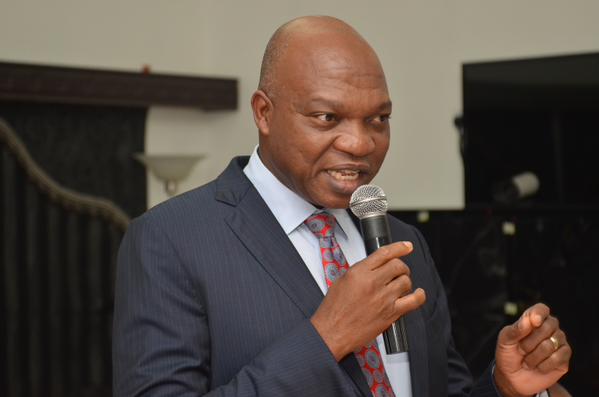
Mr. Osagie Okunbor, Managing Director and Country Chairman of Shell Companies in Nigeria
Managing Director and Country Chairman of Shell Companies in Nigeria, Mr. Osagie Okunbor, said, “To make domestic gas work, we need a right price regime. It might just mean that some sectors are supported more than others that can naturally carry themselves. The Petroleum Industry Bill provides that framework.
“A robust pricing framework would be very helpful to unlock Nigeria’s proven gas reserves, especially for Power, Agriculture, and Industrial sectors.”
Okunbor said the current pricing regime does not quite fit the wider framework of what the gas industry does. “We want to incentivize methanol and fertilizer production, which is extremely important, to gear up our agricultural sector but the price regime now in that sector is lower than the kind of prices that you have for supply to the Power sector and industrial establishments”, he said.
He advocated for robust engagement in discussions for an agreeable price framework to attract investments in the country’s rich gas sector.
He urged policymakers to strike a careful balance between trying to raise funds – in terms of the kind of taxes and royalties that are put on gas – and understanding that this is much more of a resource that drives national development. “Gas is by far more important as a catalyst for development, he said.”
With over 200 trillion cubic feet of gas proven, the world’s 9th largest proven gas reserves, Osagie said Nigeria can satisfy both domestic and export markets of gas if the right policies and processes are put in place and the country continues to drive those policies, processes, and gas infrastructure.
Apart from the fact that it will help the region to harness its hydrocarbon resources, it will also create a big market for supply, insulating the region to a large extent, from global volatility in the oil market and reposition it for the energy transition.
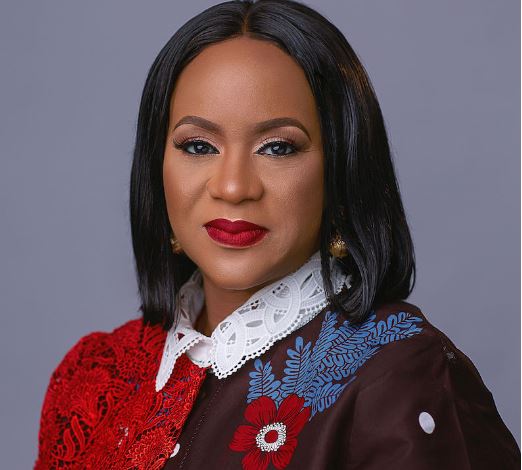
Audrey Joe-Ezigbo, the Deputy Managing Director of Falcon Corporation Limited
Audrey Joe-Ezigbo, the Deputy Managing Director of Falcon Corporation Limited, said that Africa is a continent of a billion people and ranked as the 5th continent in the global population but yet it is currently in a situation of about 43% of Sub-Saharan Africa do not have access to electricity. This is a huge problem despite Africa is ranked as the youngest growing population.
According to a report, Africa will exceed China as one of the most populous nations in the world in the coming years.
She said: “There has been a lot of conversation going on around how energy will enhance the quality of life on the continent. There is no transition for Africa without Gas. It is a resource that we need to leverage.
“Gas is the core fuel that will transform Africa but we need to develop a regional collaboration to address specific challenges in-country.
“There are many challenges such as infrastructure that is needed to be dealt with. On the point of view to enabling the entrepreneurial capacity and industrialization potential of the continent, we need to be looking at LNG where we can move those kinds of big molecules – a large number of volumes to power projects that are much needed on the continent.
“I believe that coming out of the pandemic and the impacts on the global economy, global LNG trade will continue to grow and a core part of the growth will be coming from Africa.
“As we are looking at the export market, it is also important that each country in Sub-Saharan Africa should focus on domesticating production, consumption, and utilization.”
Taking an overview of the African LNG trade outlook, African LNG export will continue to grow further in 2021 despite the impact of the coronavirus pandemic on gas production and demand in 2020, according to Gas Exporting Countries Forum (GECF) analysis.
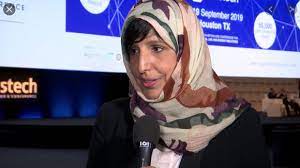
Ms. Mahdjouba Belaifa, GECF’s Gas Market Analysis Department Head
In her presentation at SAIPEC 2021, Ms. Mahdjouba Belaifa, GECF’s Gas Market Analysis Department Head, said Africa accounts for 11% of global LNG exports, and its LNG exports have increased by more than five million tonnes in the last five years.
“Despite the decline of LNG exports in 2020, LNG export from Africa will grow in 2021 based on the current development in the oil and gas industry.
“Africa’s GDP is expected to rebound to 3.4% in 2021, and 4% in 2022. While Gas production will start to recover in 2021 and will continue to grow further by 2022.
“GECF sees a bright future from LNG exports from Africa to meet the growing energy demand and is supporting Africa’s LNG industry through gas supplies from its member countries.
“While the LNG price tag continues trending in the first quarter of 2021, the NEA LNG prices recorded a daily high of almost $40 MMBU. In February, it reached a record high of almost $24 of MMBU.
“Between 2021 and 2023, around 200 Mtpa of LNG projects are targeting FID with around 23 Mtpa in Africa.
“GECF’s outlook highlights that 26 Mtpa of new LNG capacity is expected to be commissioned in Africa between 2021 and 2027 which represents 17% of the global capacity addition during this period.
“Though the Inter-regional pipeline gas trade is still relatively small in Africa with only two Sub-Saharan countries – South Africa and Ghana importing pipeline gas from their neighbors.
“Besides, two North African countries – Tunisia and Morroco import pipeline gas. While Algeria accounts for about 80% of regional gas pipeline export.
“Africa is well-positioned to supply the emerging and potential market. The continent is an attractive destination for LNG business as Nigeria, Ghana, Ivory Coast, Morocco, Namibia, South Africa are potential markets.
“Africa has great potential for natural gas and renewable energy sources. Its economies are growing fast and there is a cordial relationship going on between Africa and the global community,” she concluded.
Gas is the energy of the future. Sub-Saharan Africa and indeed the African continent, have huge gas reserves. Harnessing these huge reserves can help the region to a large extent, in addressing the issue around access to energy, poverty eradication, unemployment, and building stronger economies.
Harnessing these huge reserves will help the region to a large extent, in addressing the issue around access to energy, poverty eradication, unemployment, and building stronger economies.


